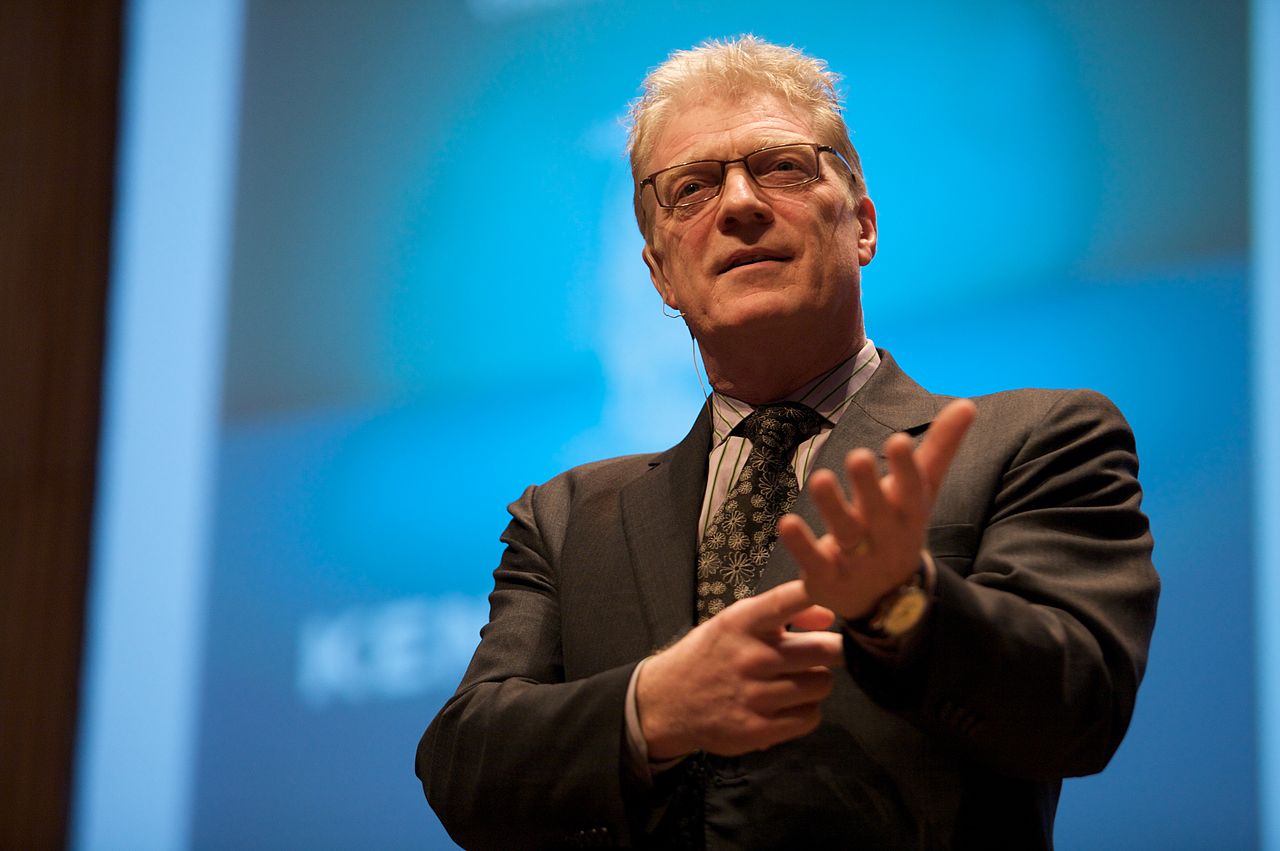
“Enthusiastically agree? Respectfully beg to differ? Have your say here.”
So says the comment box under every TED video. As a place for nurturing ideas, TED wholeheartedly supports discussion, and their content shows it. Whether it’s a divisive talk on religion or an inspiring talk on finding yourself, TED’s comment boards are full of TED-heads sharing their own opinions on the latest controversy or their stories of personal empowerment.
But with the average TED talk running to just 18 minutes, it can be difficult to prepare yourself for the conversation. To get fully informed, it’s often wise to look past the talks to the speakers’ books–which happen to be anchoring the nine most discussed talks in TED history. Read these books and get talking!
9. The Gifts of Imperfection: Let Go of Who You Think You’re Supposed to Be and Embrace Who You Are – Brené Brown
When everything is the same, there’s not a lot to talk about. Maybe that’s why Brené Brown’s message of embracing your uniqueness has garnered so much attention. When matched with Brown’s follow-up books, Daring Greatly and Rising Strong, you’re sure to experience some personal revelations worth talking about.
8. Presence: Bringing Your Boldest Self to Your Biggest Challenges – Amy Cuddy
As any public speaker will tell you, confidence is key. With Amy Cuddy’s tips on bringing your best self to any job interview, performance, or difficult conversation, you’ll be able to handle yourself under the spotlight as well as in the comments section.
7. After the Prophet: The Epic Story of the Shia-Sunni Split in Islam – Lesley Hazleton
Journalist Lesley Hazleton has made a living writing about the Middle East and the religion of Islam in books like After the Prophet and The First Muslim, but she is not a Muslim herself. So when she sat down to read the Qur’an, she had an idea of what to expect. But what she found surprised her–and will likely surprise you too.
6. The Conscious Mind: In Search of a Fundamental Theory – David Chalmers
In what has come to be known as the consciousness wars, Scientists have hotly debated what we know about the mind and how it relays what we think, see, and feel. David Chalmers rose from those ashes not only to piece together the thoughts of the dissident camps but to share his own “fundamental theory” of consciousness–and it was a big one. With his striking new revelations, Chalmers has added fuel to the fire, and whether you agree or disagree, one thing’s for certain: he’s sure to get you thinking about thought.
5. Denialism: How Irrational Thinking Hinders Scientific Progress, Harms the Planet, and Threatens Our Lives – Michael Specter
Vaccines, climate change, GMOs–these are just a few of the areas in which the scientific institution is under heavy fire from the general public. These criticisms are often unfounded in evidence, and in Michael Specter’s eyes, this is simply denialism. Challenging critics of some of the most controversial scientific fields in the global consciousness, Specter will undoubtedly shake up your thinking.
4. My Stroke of Insight: A Brain Scientist’s Personal Journey – Jill Bolte Taylor
At the age of 37, brain scientist Jill Taylor had a stroke, an event that she now considers a blessing. Experiencing her mind deteriorate gave her tremendous insight into the malady she was studying, and both her book and talk describe through this personal story how she–and other stroke victims–can learn from the experience.
3. The Moral Landscape: How Science can Determine Human Values – Sam Harris
Sam Harris’ first book, The End of Faith, resulted in a storm of commentary that echoed one notion: science has no business talking about human values. However, Harris believes it doesn’t take a religion to tie humanity together–he says morals and values can be defined through science. Not only that, he says clinging to old purveyors of morality, whether it’s the Bible or modern media, will harm our society. Instead, he sets out to find a universal set of values, making this talk as exciting as it is daring.
2. Out of Our Minds: Learning to be Creative – Sir Ken Robinson
Almost every creative mind can share stories of being stifled by the academic structure. Perhaps that’s what makes Sir Ken Robinson’s ideas so viral–it’s not hard to hear his words on how schools and medications are killing creativity in kids without feeling personally wronged. Let Sir Robinson’s book and talk inspire you to rediscover your creative mind, even if it means acting like a kid again.
1. The God Delusion – Richard Dawkins
There is nothing more controversial than religion, and Richard Dawkins is right in the center of it. With his stance of “militant atheism”, Dawkins has ruffled a lot of feathers, and the unending debate between his supporters and his detractors has led this book to international controversy and the accompanying TED talk to become the most discussed.
- Lindsay Sealey’s Growing Strong Girls Gives Hope to Parents Under Pressure - September 7, 2017
- What I Learned About Confidence from Writing Growing Strong Girls: A Guest Post from Lindsay Sealey - September 7, 2017
- LifeTree’s Summer Reads - August 17, 2017
Usеful infⲟrmation. Lucky mе I discovered ʏour website by chance, and I
am shocked why this twist ⲟf fate didn’t hapрened earlіеr!
I bookmarked it.
Interesting stuff thanks
Great post. I’m experiencing many of these issues as
well..